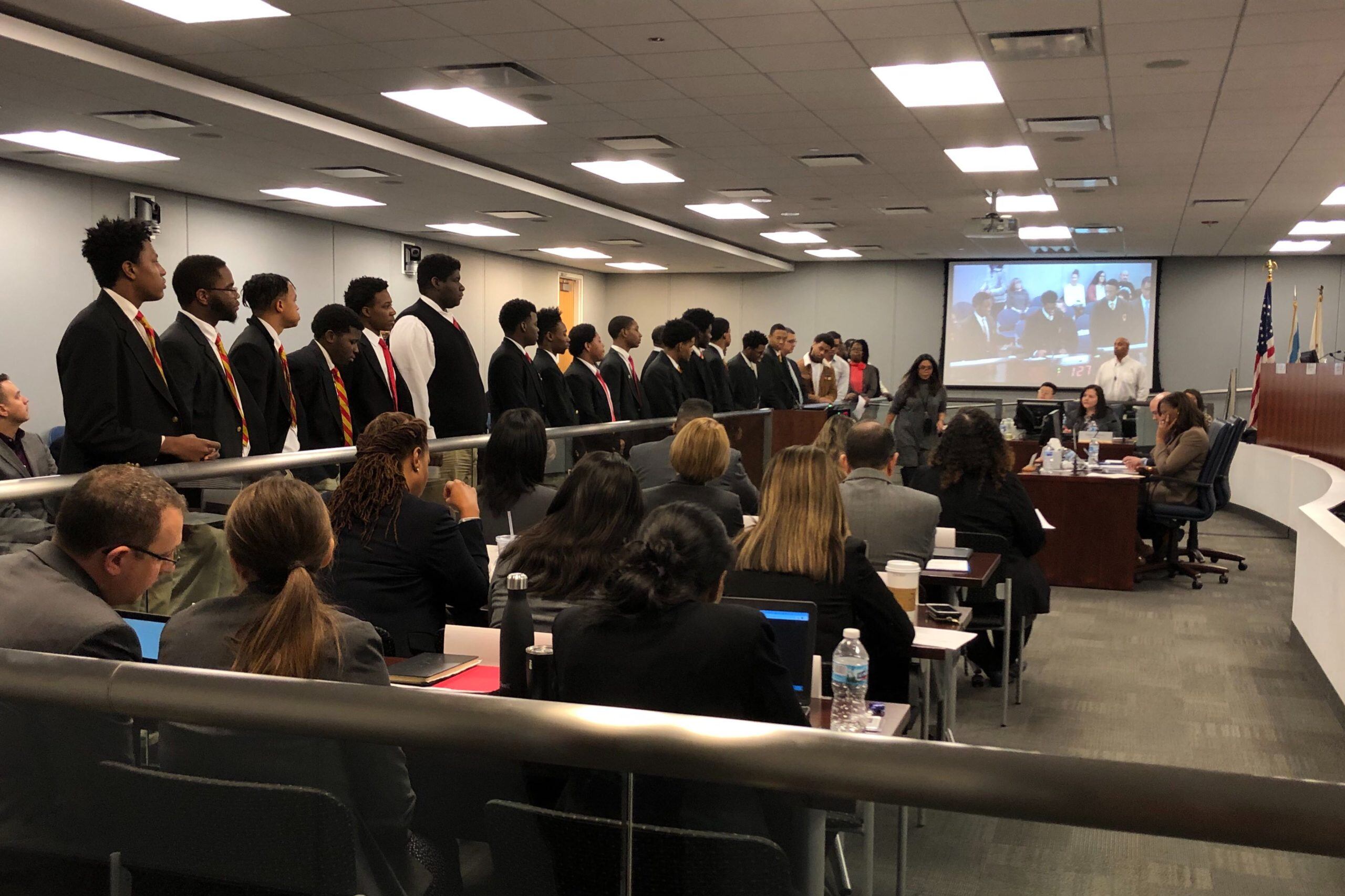Sign up for Chalkbeat Chicago’s free daily newsletter to keep up with the latest education news.
Forced by a court order, the Chicago Board of Education voted Thursday to extend charter school contracts run by embattled Urban Prep Charter Academy.
The board approved an extension until June 2024 for the network’s Bronzeville and Englewood campuses.
The extension comes more than a year after the board voted not to renew the contracts, with plans to take over those schools. The board’s decision was based on allegations that Urban Prep mismanaged finances and failed to comply with special education laws, as well as allegations that the school’s founder, Tim King, sexually abused a now-former student. King has denied those allegations.
Urban Prep appealed the board’s decision to state education officials, who sided with CPS. The charter network then filed a lawsuit in Cook County Circuit Court alleging that their agreement couldn’t be revoked because of the state’s moratorium on closing schools until 2025. In July, the court ruled in Urban Prep’s favor.
“That is why we are here — to be in compliance with the court’s order even as it may be contrary to previous actions by the board,” Board Vice President Elizabeth Todd-Breland said last week at a meeting to review the board’s agenda.
CPS has appealed the court’s decision.
Mayor Brandon Johnson, who currently appoints the school board, is critical of the charter sector, but he has also stressed that he doesn’t oppose charter schools. The board recently passed a resolution signaling that it wants to boost neighborhood schools and move away from the district’s school choice system, which families use to apply to magnets, charters, and test-in schools and other programs.
Several teachers and families from other charter networks have pleaded with the board to renew their contracts over the past several months, including on Thursday. Christian Feaman, director of district advocacy for Illinois Network of Charter Schools, suggested the board’s new resolution attempts to “claw back the basic rights” of school choice for “Black and brown families.”
The resolution — which doesn’t create or get rid of any current policies or schools — isn’t intended to signal a closing of all charter schools, Todd-Breland said Thursday. Rather, the board wants to “hold charters accountable to the promise that was made at their founding,” she said.
The Urban Prep agreement approved Thursday comes with more than a dozen conditions, including cooperation in district investigations and complying with financial oversight. Those conditions are generally the same that Urban Prep has had to follow in the past, most of which Urban Prep has not attempted to comply with, said Zabrina Evans, executive director of the district’s Office of Innovation and Incubation in the Office of Portfolio Management, last week.
In remarks to the board Thursday, Dennis Lacewell, chief academic officer at Urban Prep, said the district is spreading “lies and propaganda” about the charter failing to meet nearly all the requirements CPS has asked of it. Lacewell said Urban Prep has complied with eight of ten previous conditions and submitted evidence to the district.
Separately, a few public speakers raised concerns about the board’s resolution, specifically saying the board shouldn’t be moving to close any selective enrollment or gifted schools. Todd-Breland emphasized that there is no current plan to close any schools.
Reema Amin is a reporter covering Chicago Public Schools. Contact Reema at ramin@chalkbeat.org.








